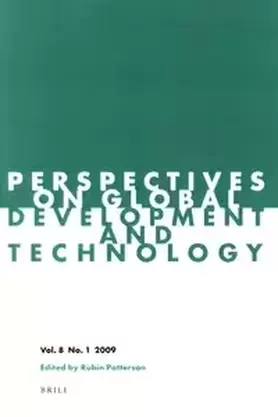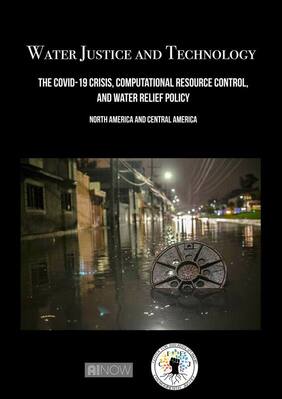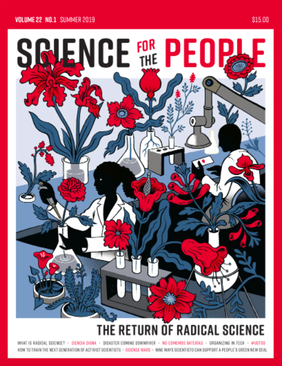Authored

Rejecting Green Colonial Solutions: Towards Decolonial Solidarity with Mother Earth's Revolt (2022), Perspectives on Global Development and Technology 21: 338-359
Read here
Read here

A Challenge to Green New Deal Activists: We Need to Reject “Sustainable” Technologies That Reproduce Colonial Gold Rush Devastation on Indigenous Peoples, in “Water Justice and Technology: The COVID-19 Crisis, Computational Resource Control, and Water Relief Policy,” AI Now Institute at New York University, January 10, 2022
Read here
Read here

No Comemos Baterías: Solidarity Science Against False Climate Change Solutions (2019), Science for the People Magazine.
Read here
Read here
Current efforts to use electric vehicles to transition to a “zero-emission” world reduce climate change to an emissions issue, without stopping the extraction and oppression that are the causes of climate change. As CIEJ, we have chosen to align ourselves with Indigenous land and water protectors to develop a science practice for decolonization grounded in anti-racism and feminism and, ultimately, to identify alternatives to green-washed capitalism that can truly confront climate change. Unlike the isolating high speeds of consumption promoted by the tech industry, our process as a community organization is slow, complex, collective, and relationship-driven. We seek not just to prevent further climate and environmental catastrophe, but ultimately to break away and heal from over 500 years of colonial, capitalist, racist, and heteropatriarchal violence. And we humbly propose that, from a scientific standpoint, decolonial feminist science can have a critical role in that process.
Co-authored or endorsed

On the Frontlines of Lithium Extraction: YLNM Communique #1 (2021),
Yes to Life No to Mining
Read here
Yes to Life No to Mining
Read here
Lithium and its associated technologies (e.g. lithium-ion batteries) are neither 100% ‘clean’ nor ‘green,’ whatever the industry might say. They are also not “emissions-free” for any foreseeable time. We don’t endorse any greenwashing initiative of the mining industry, and we reject the notion and promotion of “green”, “climate smart” or unsubstantiated claims of “responsible” mining which serve primarily to hide the realities of extraction, and advance and excuse consumerist agendas in wealthy parts of the world.
We therefore believe lithium should not be indiscriminately promoted as a “green” mineral for the so-called ‘energy transition’. Quite the contrary, as we show, the impacts of lithium mining and processing are at odds with Sustainable Development Goals, the fundamental claims of Climate Justice, Human Rights and Rights of Nature.
We therefore believe lithium should not be indiscriminately promoted as a “green” mineral for the so-called ‘energy transition’. Quite the contrary, as we show, the impacts of lithium mining and processing are at odds with Sustainable Development Goals, the fundamental claims of Climate Justice, Human Rights and Rights of Nature.

Our Strike is Essential! Together with Polish Women for Freedom of Abortion (2020), Essential Autonomous Struggles Transnational
Read here
Read here
These attacks on women’s and reproductive freedom are central in the reproduction and crystallization of hierarchies in the pandemic society. We stand once again together with Polish women today in their fight for safe, legal and free abortion. Their struggle is strategic in our project of transnational connection and a way to go out of isolation: in it we recognize the claim not to be subaltern, and the possibility to overturn the hierarchies which oppress all of us.
Our lives are essential, our freedom is essential, our strike is essential!

Lithium is the New Oil: A Statement in Opposition to the US-Backed Coup in Bolivia (2019), PYM-USA.
Read here
Read here
Make no mistake: we see all too clearly how the popular will of the Bolivian people has been trampled on to ensure that the returns of corporate crooks and disaster-capitalist oligarchs can be maximized. One of the most sickening aspects of this progression of events is how moneyed liberal environmentalists will pat themselves on the back for driving cars that run on the very mineral for which the will of a struggling populace is being repressed, crushed by the iron heel of profit. Electric cars may run on lithium and cobalt, but they are also powered by the blood and suffering of the Bolivian people, the entire constellation of Indigenous communities of the Andean highlands, spanning into Chile and Argentina, and child labor in the Democratic Republic of Congo. The ravenous thirst for lithium resembles that of the California gold-rush, and just as devastating as that was for Indigenous peoples of so-called California and the natural landscape, this ‘white gold rush’ aims to reverberate the same results for Western gain.
How liberal Zionism hurts us more (2020), Mondoweiss.
Read here
Read here
And so we recognize that this is about far more than Georgette Gómez. We represent a wide array of organizations involved in anti-oppression organizing. We believe in a world free of colonial walls, of capitalism and imperialism, and global Indigenous, Black and Brown liberation. These are the ethos that inform our principled opposition to Zionism.
By individual CIEJ members
The current conjuncture of crises – climate change, pandemics, the rise of fascism and state violence, the backlash of white supremacy and heteropatriarchy against anti-racism, feminism, and queer/trans liberation, the deepening extractivism of capitalism, the further dispossession and disposability of mass incarceration and deportation, etc. – can be dismantled, swiftly, like a flood, a hurricane, a wildfire – if we can organize ourselves.
Interview with Amrah Salomón: Mujeres indígenas “frenan” temporalmente la construcción del muro fronterizo durante protesta (2020), Telemundo.
Watch here
Watch here
Un grupo de mujeres indígenas O’odham detuvieron por un momento la construcción del muro en la frontera en protesta por la destrucción de lo que consideran tierra sagrada. (A group of indigenous O'odham women temporarily halted the construction of the border wall in protest at the destruction of what they consider to be sacred land.)
Opinion: We need massive societal change if we're going to survive and thrive on Earth, by Rishi Sugla, Ensia. Read here
The problem is, solutions to climate change — and other environmental problems we face — unfortunately can’t be reduced to such a simple exchange.
That’s because any choice, green energy included, is littered with unintended consequences that are hard to predict and very often end up wiping away the gains we expected from them.
How green is green technology? by Rishi Sugla, Tomorrow Unlocked.
Read here
Read here
Imagine an entire country enacts a law that requires the use of a more energy-efficient LED lightbulbs. Sounds good right? But what if I told you that in every country this law has been passed energy consumption went up?

